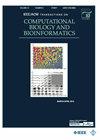TeaTFactor: A Prediction Tool for Tea Plant Transcription Factors Based on BERT
IF 3.4
3区 生物学
Q2 BIOCHEMICAL RESEARCH METHODS
IEEE/ACM Transactions on Computational Biology and Bioinformatics
Pub Date : 2024-08-16
DOI:10.1109/TCBB.2024.3444466
引用次数: 0
Abstract
A transcription factor (TF) is a sequence-specific DNA-binding protein, which plays key roles in cell-fate decision by regulating gene expression. Predicting TFs is key for tea plant research community, as they regulate gene expression, influencing plant growth, development, and stress responses. It is a challenging task through wet lab experimental validation, due to their rarity, as well as the high cost and time requirements. As a result, computational methods are increasingly popular to be chosen. The pre-training strategy has been applied to many tasks in natural language processing (NLP) and has achieved impressive performance. In this paper, we present a novel recognition algorithm named TeaTFactor that utilizes pre-training for the model training of TFs prediction. The model is built upon the BERT architecture, initially pre-trained using protein data from UniProt. Subsequently, the model was fine-tuned using the collected TFs data of tea plants. We evaluated four different word segmentation methods and the existing state-of-the-art prediction tools. According to the comprehensive experimental results and a case study, our model is superior to existing models and achieves the goal of accurate identification. In addition, we have developed a web server atTeaTFactor:基于BERT的茶树转录因子预测工具。
转录因子(TF)是一种序列特异的 DNA 结合蛋白,通过调控基因表达在细胞命运决定中发挥关键作用。转录因子调控基因表达,影响植物的生长、发育和胁迫反应,因此预测转录因子是茶叶植物研究界的关键。由于其稀有性、高成本和时间要求,通过湿实验室实验验证是一项具有挑战性的任务。因此,越来越多的人选择计算方法。预训练策略已被应用到自然语言处理(NLP)的许多任务中,并取得了令人瞩目的成绩。在本文中,我们提出了一种名为 TeaTFactor 的新型识别算法,它利用预训练来进行 TFs 预测的模型训练。该模型基于 BERT 架构,最初使用 UniProt 中的蛋白质数据进行预训练。随后,利用收集到的茶树 TFs 数据对模型进行了微调。我们评估了四种不同的单词分割方法和现有的最先进预测工具。根据综合实验结果和案例研究,我们的模型优于现有模型,实现了准确识别的目标。此外,我们还在 http://teatfactor.tlds.cc 网站上开发了一个网络服务器,相信这将有助于今后对茶叶转录因子的研究,并推动作物合成生物学领域的发展。
本文章由计算机程序翻译,如有差异,请以英文原文为准。
求助全文
约1分钟内获得全文
求助全文
来源期刊
CiteScore
7.50
自引率
6.70%
发文量
479
审稿时长
3 months
期刊介绍:
IEEE/ACM Transactions on Computational Biology and Bioinformatics emphasizes the algorithmic, mathematical, statistical and computational methods that are central in bioinformatics and computational biology; the development and testing of effective computer programs in bioinformatics; the development of biological databases; and important biological results that are obtained from the use of these methods, programs and databases; the emerging field of Systems Biology, where many forms of data are used to create a computer-based model of a complex biological system

 求助内容:
求助内容: 应助结果提醒方式:
应助结果提醒方式:


